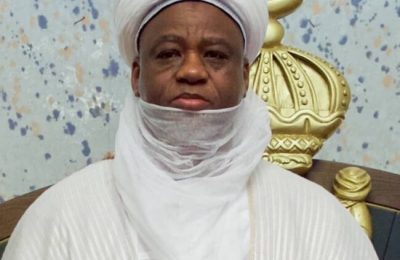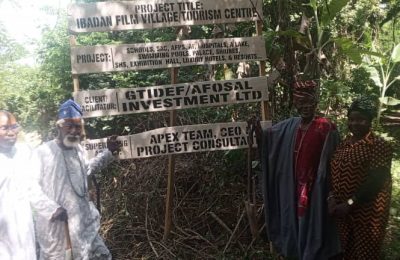President Muhammadu Buhari has given reasons why he wants bequeathing of a sustainable democratic structure as his legacy, saying that no matter the gains made, without free, fair, and credible elections, development efforts will be futile with negative consequences on the citizens.
He spoke Thursday in Washington DC at the ongoing US-Africa Leaders Summit on the topic, “Partnering on Agenda 2063: A Peaceful and Secure Africa,” where he also warned that Africa risks not attaining the goals continental leaders have set for the region by 2063 in view of challenges facing it.
President Buhari who was talking about his focus on delivering a credible process for the 2023 general elections, said: “In addition, my government has made it a priority to conduct violence-free elections in the 2023 general elections in Nigeria.

“As highlighted in my Independence Day remarks on 1st October 2022; I should like to reiterate, that no matter what gains we make, without good governance anchored on credible elections that are free, fair, credible, and transparent, our development efforts would remain futile and our citizenry would be worse off.
“It is for this reason that I have resolved to bequeath a sustainable democratic culture, which will remain a lasting legacy. The signing of the Electoral Act 2021, as amended, with landmark provisions, further assures us of a more transparent and inclusive electoral process.”
Buhari expressed the belief that the goals continental leaders set for the region by 2063 can still be achieved if there is a unity of purpose among all member states.
He noted: “Africa’s security and development landscape has undergone significant transformation over the past decades. The Continent has witnessed increased, diverse and complex threats including climate change, the scourge of terrorism, violent extremism, transnational organized crimes, ideological radicalization, and recently, an upsurge in Unconstitutional Change of Governments (UCGs).

“It is clearly evident that these developments negatively impact national, regional, and continental stability and undermine our drive towards achieving AU Agenda 2063 and our flagship project ‘Silencing the Guns in Africa’, as well as the Sustainable Development Goals (SDGs). That is why we must continue to act collectively, in unity and solidarity in our fight against these threats.”
He called on member states to ensure that inclusive governance, constitutionalism as well as strengthening of African Union mediating support mechanisms and conflict prevention mechanisms are emplaced as a panacea to emerging Intra/interstate resurgence of conflicts in Africa.
ALSO READ FROM NIGERIAN TRIBUNE
“As leaders, we must recommit ourselves to shared values, vision, unity, and solidarity, particularly in upholding constitutionalism, democracy, and good governance. We must also embrace a multidimensional approach in order to achieve peace, security, and sustainable development, in line with our aspirations contained in Agenda 2063,” President Buhari said.
The President noted while many countries in Africa have conducted successful elections, drastic actions have also been taken in cases of unconstitutional regime changes, commending the improved harmony between the African Union Commission and the United Nations.
“As you may be aware, a number of successful national elections that facilitated peaceful political transitions across the continent have been held. Equally, military coups have been condemned and rejected, with the restoration of constitutional order in some countries and the suspension of four (4) Member States from the activities of the African Union.
“There is now improved coordination between the African Union Commission, the United Nations, and various foreign partners leading to the adoption of the United Nations Security Council (UNSC) Resolution 2457 (2019), an embodiment of the commitment of the international community to complement Africa’s efforts to silencing the Guns on the continent. We have also seen progress in regional cooperation to fight terrorism and violent extremism through the establishment of ad-hoc mechanisms endorsed by the Assembly of Heads of State and Government of the African Union.
“The need to continue strict implementation of the Arms Trade Treaty, Arms Embargoes, including other relevant regional and international instruments to complement and consolidate the African Peace and Security Architecture (APSA) cannot be over-emphasized. Equally important is the need to ensure the harmonization of the African Peace and Security Architecture and the African Governance Architecture (AGA). This would ensure better evidence-based early warning mechanisms that can be translated to early conflict preventive action by the AU Peace and Security Council.”
Reiterating the commitment of the Nigerian government towards good governance as well as the collective fight against terrorism and the humanitarian challenges arising therefrom, the Nigerian leader said: “We have replicated these realities particularly, in the Lake Chad Basin region, where we are very supportive of the Multinational Joint Task Force (MNJTF) to fight terrorism and transnational-organized crimes, as well as the ongoing stabilization strategy in the area aimed at dealing with the impact of climate change and other humanitarian challenges.







